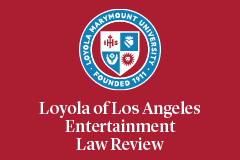Abstract
The Fyre Festival is one of the most infamous disasters in music festival history. Lesser known to the public is that the influencers involved in Fyre Festival’s influencer marketing campaign were required to disclose their payments for endorsing the event. These types of disclosures are regulated by the Federal Trade Commission (“FTC”) pursuant to its authority granted under the Federal Trade Commission Act (“FTC Act”). The disclosure requirement is set forth in the FTC’s Guides Concerning the Use of Endorsements and Testimonials in Advertising (“Endorsement Guides”), which are nonbinding instructions that educate influencers on how to comply with Section 5 of the FTC Act.
While the FTC pursues companies and influencers that violate the disclosure requirements, its attempts are futile due to the Endorsement Guides’ nonbinding nature. With influencer marketing growing rapidly and fraudulent practices becoming rampant, the FTC must make two changes to become more effective. First, the agency must use its rulemaking authority under the FTC Act to codify elements of the Endorsement Guides, and other FTC works into formal rules that will allow it to seek monetary penalties and consumer redress against violators. Second, the FTC must mandate disclosure provisions to be present in every influencer-company endorsement contract to prevent the prevalent deceptive business practice. By implementing these two changes, the FTC will have adequate tools at its disposal to prevent and punish violators who previously remained outside its grasp.
Recommended Citation
Keith Coop,
Influencers: Not So Fluent in Disclosure Compliance,
41 Loy. L.A. Ent. L. Rev. 77
(2021).
Available at: https://digitalcommons.lmu.edu/elr/vol41/iss1/3


